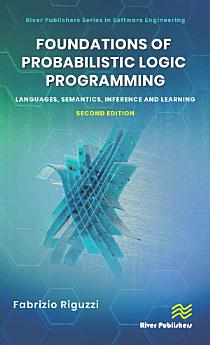Foundations of Probabilistic Logic Programming: Languages, Semantics, Inference and Learning, Edition 2
About this ebook
This book aims at providing an overview of the field with a special emphasis on languages under the Distribution Semantics, one of the most influential approaches. The book presents the main ideas for semantics, inference, and learning and highlights connections between the methods.
Many examples of the book include a link to a page of the web application http://cplint.eu where the code can be run online.
This 2nd edition aims at reporting the most exciting novelties in the field since the publication of the 1st edition. The semantics for hybrid programs with function symbols was placed on a sound footing. Probabilistic Answer Set Programming gained a lot of interest together with the studies on the complexity of inference. Algorithms for solving the MPE and MAP tasks are now available. Inference for hybrid programs has changed dramatically with the introduction of Weighted Model Integration.
With respect to learning, the first approaches for neuro-symbolic integration have appeared together with algorithms for learning the structure for hybrid programs.
Moreover, given the cost of learning PLPs, various works proposed language restrictions to speed up learning and improve its scaling.
About the author
Fabrizio Riguzzi is Full Professor of Computer Science at the Department of Mathematics and Computer Science of the University of Ferrara. He was previously Associate Professor and Assistant Professor at the same university. He obtained his Masters and PhD in Computer Engineering from the University of Bologna. Fabrizio Riguzzi is Editor in Chief of Intelligenza Artificiale, the official journal of the Italian Association for Artificial Intelligence. He is the author of more than 200 peer reviewed papers in the areas of machine learning, inductive logic programming and statistical relational learning. His aim is to develop intelligent systems by combining in novel ways techniques from artificial intelligence, logic and statistics.






